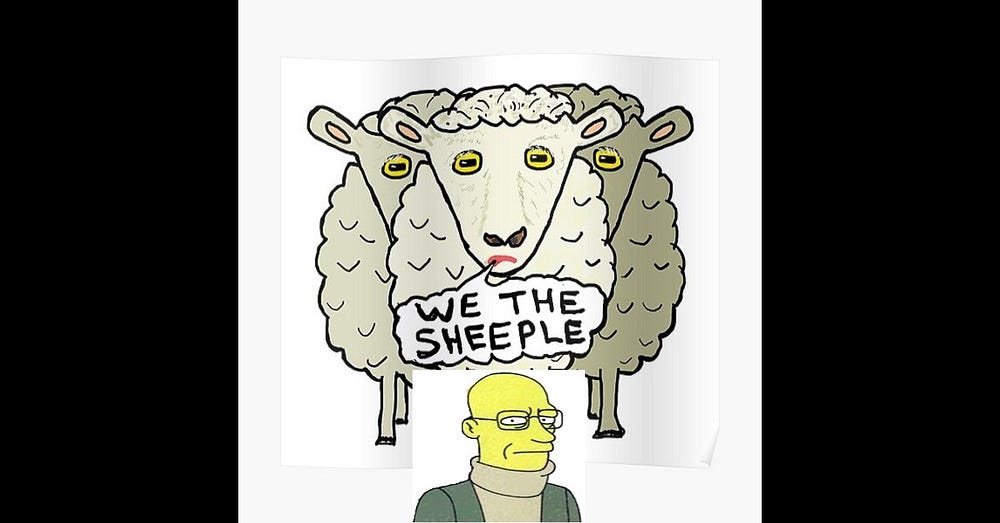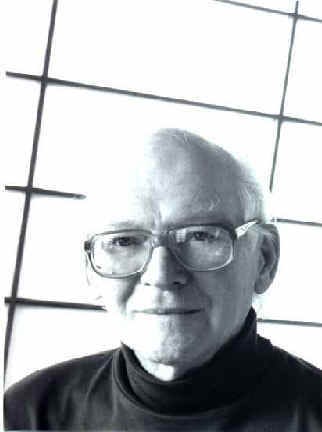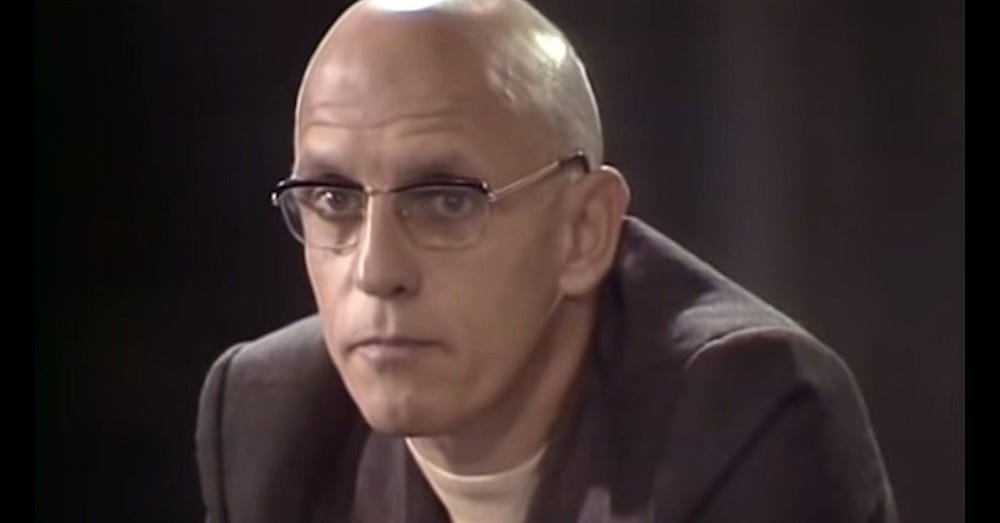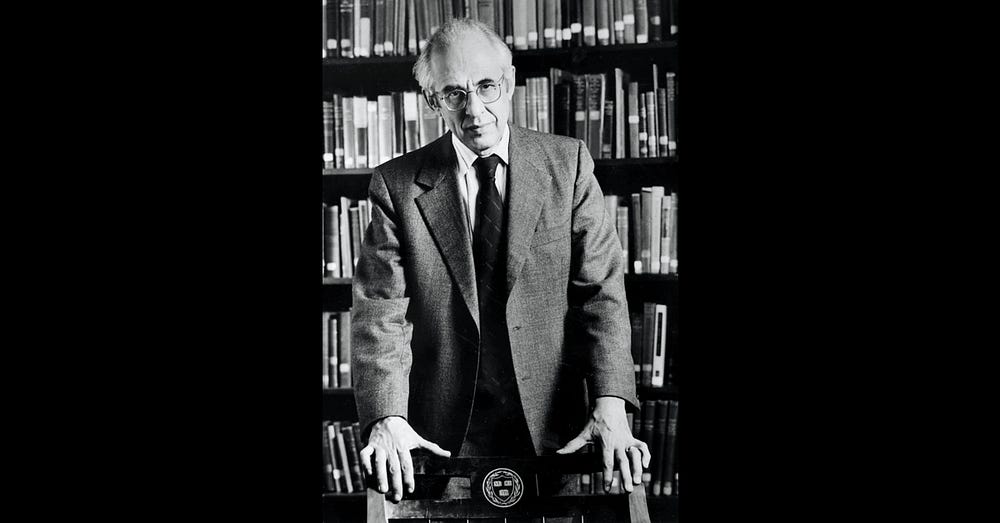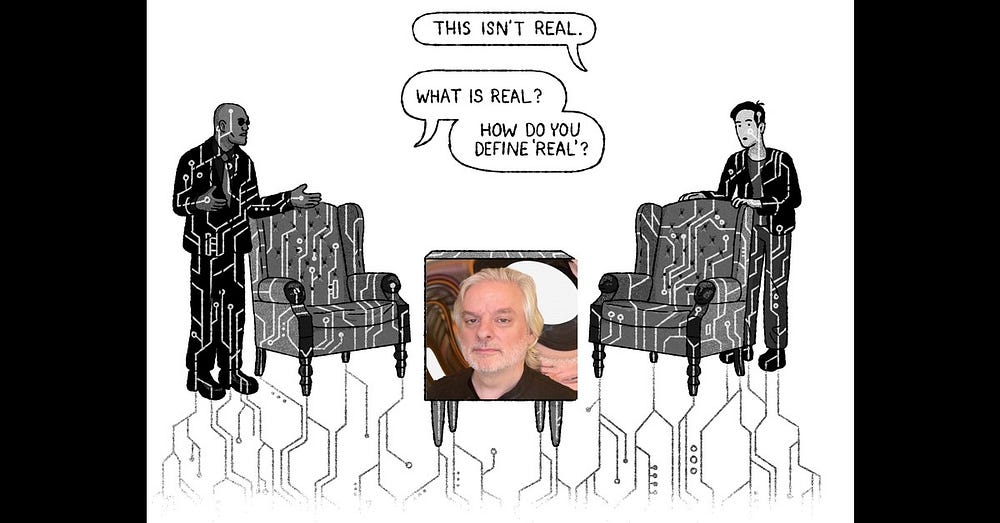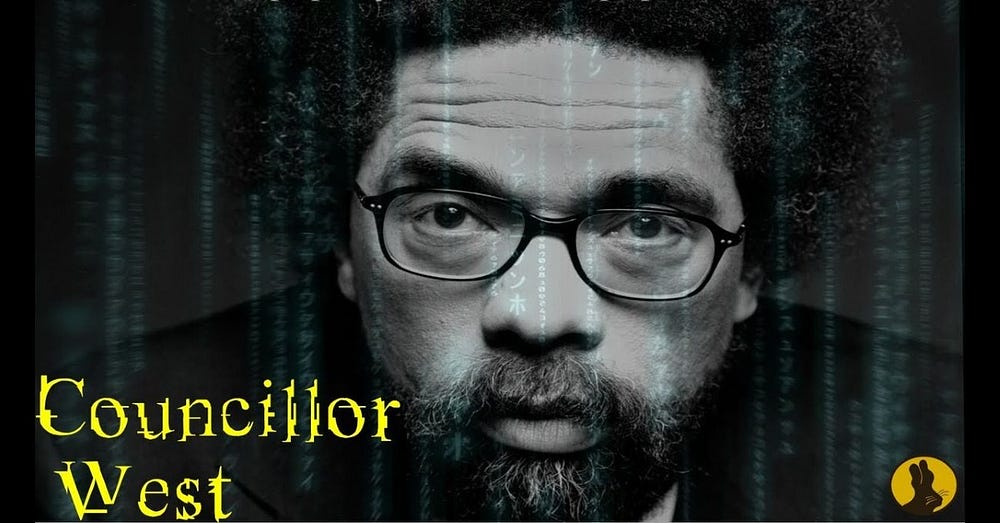The American philosopher David Kellogg Lewis (1942–2001) approached the lottery paradox from a philosophical angle. That is, he didn’t approach it in the same way as many mathematicians, scientists and logicians had previously done. Lewis, instead, focussed on knowledge and justification and their relation to the paradox… Yet knowledge and justification aren’t natural kinds. So this means that they can never have — or be given — determinate and entirely uncontroversial conditions of identity.
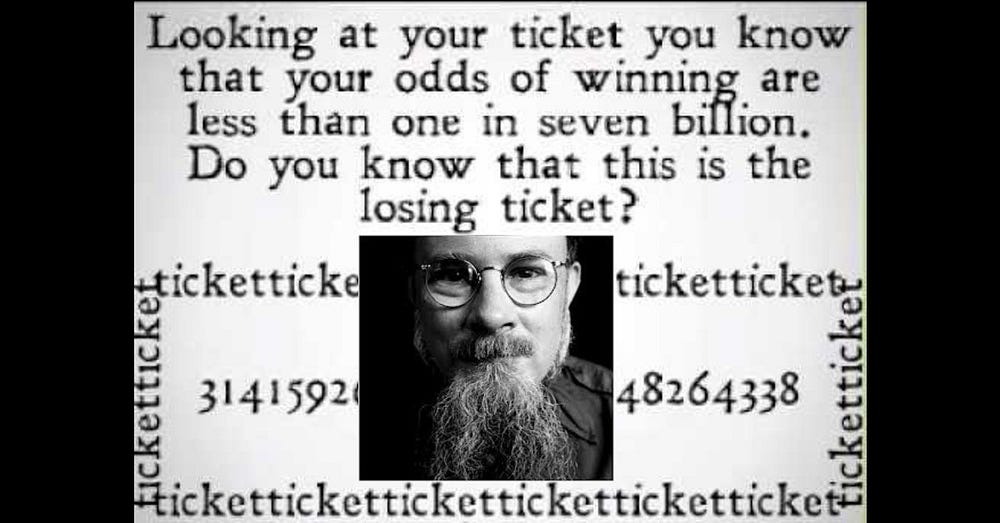
Since this essay is about David Lewis’s take on knowledge and justification as they relate to the lottery paradox, let’s start off with a relevant passage from the American philosopher (who died in 2001):
“The greater the number of losing tickers, the better is your justification for believing you will lose. Yet there is no number great enough to transform your fallible opinion into knowledge — after all, you just might win. No justification is good enough — or none short of a watertight deductive argument.”
[The quotes from David Lewis in this essay all come from his 1996 paper ‘Elusive Knowledge’.]
The passage above expresses a strong disjuncture between knowledge and justification.
However, firstly it needs to be noted that David Lewis used the terms “knowledge” and “justification” in extremely specific ways. That is, ways which are strongly beholden to many — though certainly not all — philosophical traditions. The most important tradition — relevant to this issue — is the one which had it that “knowledge is justified true belief”, which is a position which Lewis himself rejected. However, Lewis clearly bounced off this tradition. Indeed, his own position is an attempt to show that knowledge and justification can indeed run along separate lines.
Relevantly, and perhaps at odds with Lewis’s own position (as well as the knowledge-is-justified-true-belief position he rejected), it can be argued that knowledge and justification aren’t natural kinds which have — or can even be given — determinate and entirely uncontroversial conditions of identity.
[See note (1) on the British philosopher Michael Williams at the end of this essay.]
All this means that not all laypersons — not even many laypersons — use the words “knowledge” and “justification” in the same — technical — way in which Lewis did. And that’s simply because these are philosophical uses of such words.
Another thing which needs to be made clear (though it’s related to the points above) is that Lewis approached the lottery paradox from a philosophical angle. (This may well be a statement of the obvious.) That is, he didn’t approach the paradox in the same way as mathematicians, scientists and logicians had done before his 1996 paper.
For example, the lottery paradox was first considered by Henry E. Kyburg Jr. (The first published statement of the paradox can be found in Kyburg’s Probability and the Logic of Rational Belief of 1961.) Kyburg considered the paradox from a mainly mathematical angle. That is, he focussed on probability (as part of probability theory) and such like. He did, however, tie all that mathematics to human rationality and irrationality.
David Lewis, on the other hand, focussed on knowledge and justification and their relation to the lottery paradox.
Still, let’s now see how Lewis himself used the words “knowledge” and “justification”.
The Lottery Paradox
Say that there are a billion tickets in a lottery and they’ve all been sold to a billion different people. John buys a ticket in this lottery. It’s logically possible that he could win the jackpot. However, John may well be profoundly justified in believing that he will loose. That said, he still wouldn’t have knowledge that he will loose. That’s because — again — he may, after all, win.
In that case, why doesn’t John simply concede that he will probably loose, rather than that he will loose?
This introduction of probability, however, still involves the notion of justification.
If it’s highly probable that John will loose, then surely he’s justified in his belief that he will loose. However, that high probably doesn’t make his claim (belief) that he will loose become an expression of knowledge.
David Lewis argued that it’s not just a case that the (level of) justification in this particular case isn’t good enough to (as it were) turn justification into knowledge. He argued that it’s the case that no (to his own words) “justification would be good enough”. Again, there’s no miraculous point in which justification suddenly (or otherwise) turns into knowledge.
Thus, and as stated in the introduction, knowledge and justification are torn asunder… Or, at least according to Lewis, knowledge and justification are torn asunder.
More technically, knowledge is not (as Lewis put it) “adequately justified belief”. Basically, then, knowledge and justification are two different kinds.
So instead of believing that adequate justification will give us knowledge, perhaps John should — at least in some cases defined by context - simply throw justification overboard entirely. Or, as Lewis put it, “justification is not always necessary”. [Lewis had much to say about context. See also ‘Contextualism’.]
[Here again, my own personal position is that knowledge and justification aren’t natural kinds which have — or can even be given — determinate and entirely uncontroversial conditions of identity. Thus, I have a problem we seeing justification and knowledge in such absolutist and categorical terms. This (as it were) deflationary position within — or perhaps toward — epistemology can, perhaps, be ignored for the purposes of this essay… Or can it?]
In any case, Lewis provided us with his own examples of knowledge which don’t require justification.
Knowledge Without Justification
David Lewis asked his readers the following question:
“What (non-circular) argument supports our reliance on perception, on memory, and on testimony?”
Lewis’s point is that John’s uses of perception in the past are believed to justify his uses of perception in the present. Yet this is a circular position. That is, John is using past instances of perception to justify his uses of perception in the present.
But what if John hadn’t even justified his past uses of perception?
That would mean that his present uses wouldn’t be justified either.
Of course, it might well have been the case that John’s past uses of perception were indeed justified. However, do his past (or previous) justifications of his perceptions mean that he doesn’t need to justify his present perceptions? What’s more, what if those past (or previous) uses of perception were themselves dependent upon justifications which were even further back in his own history?
If that were the case, then John would have a regress on his hands. (A regress that, perhaps, could go all the way back to an initial reliance on perception which was not justified.)
Almost exactly the same remarks hold for John’s reliance on memory.
Past uses of memory — though only looking at them in the present —seem to John to have been correct representations of past (for want of a better word) realities. (Past uses of memory also helped John cope with what were deemed to be the realities of previous times.) However, how does John know today that those past uses of memory were in fact correct representations of past realities? Is it because he believes (today) the same about past… past uses of memory?
Lewis then offered his readers another interesting example of unjustified knowledge… Of course, the phrase “unjustified knowledge” may seem — at least to some readers — like an oxymoron.
We Don’t Even Know How We Know
Lewis argued that we know certain things even though
“we don’t even know how we know”.
So it could be the case that John doesn’t actually have “supporting arguments” to justify a particular present belief (or claim). In this case, that’s because he’s forgotten the previous justifications or supporting arguments. This also means that at one time John did have supporting arguments for that belief (or claim). However, he’s now forgotten them.
To put all that another way.
This particular belief (or claim) was justified at one time in the past. However, it isn’t (re)justified today. More relevantly, if this belief (or claim) was justified at one time in the past (that’s if it was adequately justified), then, Lewis argued, it needn’t be justified again today.
Not continually rejustifying all our beliefs (or claims) is a question of time constraints, context, and/or of epistemic common sense. In other words, if John were really required to re-justify all his beliefs (or claims) again and again, then he wouldn’t have time to acquire new beliefs (or bits of knowledge) — or even to so much as function in the world.
For example, John firmly believes that Adolf Hitler was the dictator of Germany from 1933 to 1945. Indeed, he believes that this belief (or claim) is an example of knowledge (i.e., if only on his part). However, John hasn’t justified this particular belief (or claim) for some considerable time (say, for over a decade). What’s more, other beliefs of his are dependent upon — or related to — this particular belief about Hitler. That is, John has derived other beliefs (or bits of knowledge) from this initial belief (or bit of knowledge). However, if he needed to continually re-justify this belief about Hitler, then perhaps he wouldn’t get around to justifying the beliefs that are dependent upon — or derived from — that belief (which was, after all, justified at one point in time).
All this is related to Ludwig Wittgenstein’s doubts about doubt (more correctly, doubts about global scepticism). Wittgenstein’s case against scepticism is simple.
We can’t doubt anything without exempting at least some things from doubt. [See note (2).]
So perhaps this is also either an argument for some kind of foundationalism, or, alternatively, for some kind of coherentism.
Foundationalism or Coherentism?
The argument above may be foundationalist — if only in a loose sense! — in that John must rely on certain beliefs not being continually re-justified in order to make way for — or even make possible — new beliefs. That said, his initial set of beliefs were in fact fully justified… at one point.
This means that John’s initial set of beliefs certainly won’t come under the epistemological rubric of self-evident (or unjustified) foundations.
On the other hand, the arguments above can also be deemed coherentist in that John’s new beliefs also depend upon — or derived from — an initial sets of his beliefs, which might, in turn, have depended on new beliefs (at the time) and on other sets of (even) older beliefs.
This is a coherentist picture in that it stresses the inter-relations between John’s beliefs within a set of his overall beliefs. That set itself includes subsets of beliefs and individual beliefs. What’s more, in this (epistemic) whole there are no genuinely foundational beliefs which take the weight of all the other beliefs (as it were) above them. In other words, this is (or it simply may be) a fully coherent system of mutually-supporting beliefs.
****************************************
Notes:
(1) Michael Williams’s position is primarily aimed at what he calls “epistemological realism”. He has it that the epistemological realist believes that there’s a single true analysis of both justification and knowledge.
Williams compares this kind of realism with the scientific analysis and classification of heat.
When the physicist or chemist explores the nature of heat, he looks for
“some underlying property, or structure of more elementary components, common to [all] hot things”.
Therefore, scientific realists (though not necessarily scientists themselves!) see heat as a natural kind. In other words, for the scientific realist,
“deep structural features of the elementary components of things determine the boundaries of natural, as opposed to merely nominal or conventional, kinds”.
The epistemological realist attempts to do the same kind of thing with knowledge and justification. Thus, he believes that “there must be underlying epistemological structures or principles”.
Now take the specific case of justified true belief (which, as we’ve seen, David Lewis reacted against).
For a long time, many epistemologists argued that knowledge is justified true belief . Then along came Edmund Gettier’s demonstration that this analysis of knowledge (to use Williams’s word) “fails to state a sufficient condition for knowledge”.
So is that partly — or even largely — because knowledge is not a natural kind, thing or even property that can even be given a correct analysis in all situations? (This, as Williams also states, isn’t also to argue that there is no such the thing as knowledge.)
Again, Williams makes a connection with the analysis of heat in science. He writes:
“[W]e might be inclined to suppose that just as in physics we study the nature of heat, so in philosophy we study the nature of [knowledge and justification]. But once plausible deflationary views are on the table, the analogy between [knowledge and justification] and things like heat can no longer be treated as unproblematic.”
Basically, then, epistemological realists — and many others — reify knowledge and justification. That is, they turn knowledge and justification (even when rejecting the knowledge-is-justified-true-belief thesis) into two essentially Platonic things.
(2) As Ludwig Wittgenstein put it in the posthumous book On Certainty:
“The questions that we raise and our doubts depend on the fact that some propositions are exempt from doubt, are as it were like hinges on which those [doubts] turn.
“That is to say, it belongs to the logic of our scientific investigations that certain things are in deed not doubted. []
“My life consists in my being content to accept many things.”
For example, you may doubt the geologist’s honesty or why he’s saying what he’s saying. Thus, these doubts must be (as the philosopher David Lewis himself put it in his paper ‘Elusive Knowledge’) “properly ignored”.
What’s at the heart of these exemptions is the context in which the doubt takes place.
As Wittgenstein (again) put it:
“Without that context, the doubt itself makes no sense: ‘The game of doubting itself presupposes certainty’; ‘A doubt without an end is not even a doubt.’”
If one doubts everything, then there’s no sense in doubting anything. Thus, doubt occurs within the context of unjustified belief.
My flickr account and Twitter account.









